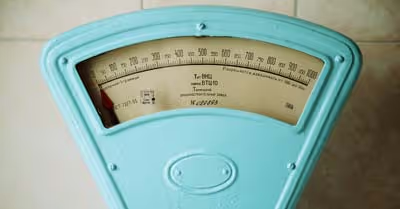Table of Contents
Why Does The Weight of a Bench Bar Matter?
As mentioned earlier, the weight of a bench bar can influence how you exercise, as well as what kind of exercises you are able to perform. It also affects the muscle groups as a result and helps tone your body accordingly. A muscle group is exactly what it sounds like – a group of muscles that are close by and used to perform very similar movements.
As weight increases, the involvement of different kinds of muscles in your body increases or decreases. For example, the pectoralis major can go from prime mover to supportive prime mover if the load becomes heavier. With higher loads on your bench bar, you might even be engaging different muscle groups.
While your personal workout is a good enough reason to concern yourself with bench bar weights, there may be other reasons too. For example, weightlifting competitions will often enforce certain standards for bench bar weights, and you will need to know the weight of yours if you want to stay eligible.
How Much Does the Standard Bench Bar Weigh?
You’re much less likely to find a standard bench bar at a commercial gym, but there are plenty available for purchase. Ideally, you’d want to get a standard bench bar if you already have standard 1-inch plates available. The bench bars are about 1-inch in shaft diameter and cannot take the load of Olympic bars.
They’re not as common nowadays, but if you want to work out with one, you’d need to know the weight of the bar. Usually, you get bars in lengths of 5 feet or 7 feet. The 7 feet bar is more common, and is rackable, but sometimes you’d find 5 feet bars as well.
These bars are not used in competitions or formal sports events and therefore, do not have any standard weight requirement either.
The typical weight for a standard bench bar is approximately 20 pounds (around 9 kilograms) while the 5 feet bar is about 14 pounds (a little less than 6.5 kilograms). Again, the actual weight of these bars may depend on the product brand and make, but when talking generally, you can assume most bench bars are around this weight, give or take.
Some brands will also provide 6 feet bars. These are much less common, but will usually weigh around 17 pounds (around 7.5 kilograms).
How Much Does an Olympic Bench Bar Weigh?
There are plenty of differences between an Olympic bench bar and the standard one, but the main difference is that the Olympic bar can load 2-inch weight plates instead of just 1-inch ones. Olympic bench bars are also generally much heavier.
The Olympic bars come with 2-inch shafts for the weight plates. There is also a collar at the end of the shaft to limit the length you can load.
Of course, all of these things will contribute towards the overall weight of the bar.
Olympic bars are the ones you’ll find used in competitions and sports events. This means that there are guidelines and regulations around what the bars should be like. This means that all manufacturers of the bars will make them according to the guidelines, and this will make them all pretty much the same.
These bars, 7 feet in length, will weigh approximately 44 pounds (around 20 kilograms) which is what is used in the men’s weightlifting competition. Some Olympic bench bars are also made specifically for the women’s competition and weigh around 33 pounds (15 kilograms) according to the guidelines.
Most popular brands of bench bars will make them using steel, and the dimensions of these bars is usually also very similar. This means that there is very little difference in the weight of bars from different brands.
There may also be some smaller versions of Olympic bench bars. For example, 6 feet bars are also available, and weigh between 25-35 pounds (11 to 16 kilograms), while 5 feet bars will weigh between 20-30 pounds.
How to Tell How Much Your Bench Bar Weighs
If you want to find out how much the bar you’re using weighs, you can do a few things.
Check the Side Cap
Most bench bars from top brands will have a side cap installed that gives you all the details about that bar. This includes things like dimensions, weight, etc. and you can simply read the weight off from here. Most commonly, if you want to check the weight of your bench bar, this will be your solution.
Weigh The Bar
If the side cap doesn’t have the weight of the bar, you can always go for the most obvious solution – weighing the bar. All gyms will have a weighing scale that you can use, but you’d have to check if it’s suitable to weigh a bench bar. Considering how long they are, they can topple over and be dangerous.
Place the bar on the scale vertically and support it with a very gentle touch. If you put in too much force, you’d affect the reading on the scale, so be as gentle as possible. Then you can read the weight on the scale.
Make Assumptions
Given that you know the length or make of the bar, and the type, you can also assume that it is a certain weight. For example, if the bar in question is an Olympic bar and is 7 feet tall, you can assume that it should be around 44 pounds, even if you have no weighing scale or side cap to give you an exact number.
Do You Need to Know the Exact Weight of Your Bench Bar?
You might think that focusing on something like exact weight is a bit pointless. After all, aren’t the generalizations enough? Does 40 pounds and 42 pounds make much of a difference?
As a matter of fact, it does! Regardless of what level you’re at, to progress in your weightlifting, you have to increment the weight at very small amounts – as small as 2 pounds!
If you go too far at once, on top of it just being a nuisance, you also put yourself at risk of serious injury. That’s why you need to know the exact weight of your bench bar so you can avoid incorrect loading and keep yourself safe.
So, how much does a weight bench bar weigh? It depends on the kind of bar you use, but most often, your standard 7 feet bench bar will be around 20 pounds, while your Olympic 7 feet bench bar will be around 45 pounds.
Recent Articles
















